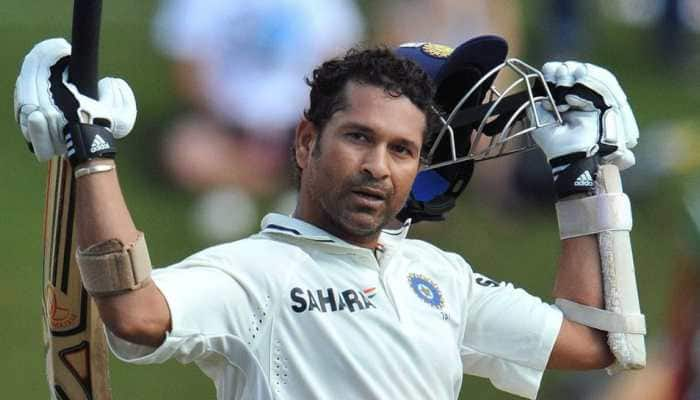Book Review: The Avenue of Kings
Sudeep Chakravarti’s ‘The Avenue of Kings’ shakes one out of stupor.
Trending Photos
)
 Shivangi Singh
Sudeep Chakravarti’s ‘The Avenue of Kings’ shakes one out of stupor. A sequel to the bestselling ‘Tin Fish’, his latest is a riveting take on the real India.With a restless, bohemian and ‘namak haraam’ hero, assassinations and suicides in the background, sarcastic tone and abrasive usage of language, author cleverly succeeds in making his point amidst the turbulence spread across the book.
‘The Avenue of Kings’ (Harper Collins), a collection of three novellas, comes across as unpretentious, almost blasphemous and completely unapologetic. The first novella (same as the title) of the book is the most compelling read of the three. It deals with sordid experiences of the protagonist Brandy Ray as he witnesses the gruesome killing of a Sikh boy by a blood-thirsty mob in the aftermath of Indira Gandhi’s assassination. Consider the lines:
“Just about a day since IG died. End of an empress, but not the empire. Democracy as we knew it, but what the fuck.”
The novel disturbs, almost disgusts and the restlessness that plagues the protagonist creeps into the reader as well. But the bright aspect of the novella is that it is amoral when it comes to sex and social norms. And when dealing with politics, some original, heady observations by Brandy, the journalist-wanderer is worth a read.
“Some Marxist historian had written in the Times that Indians had less back problems because most of us squatted for our business and that nicely exercised the spine…”
The second novella, ‘The Cradle of Innocents’, deals with the fading dream of Rajiv Gandhi. Brandy observes, “RG had played poster boy of a renewed India with Reagan just a couple of years back, posing for the world with his sexy Italian wife in the lawns of the White House….RG was now a butt of cynical jokes..”
Also, the author portrays the mindset of the disturbed youth in the 80s – the age of STD booths, Doordarshan and Coca Cola. It’s a generation struggling to gain a footing in the war of existence and amidst socio-political changes - accentuated by a series of suicides by Brandy’s friends.
But Brandy survives through his turbulent love-life with Suya, tensed relationship with father and other misfortunes, as he is essentially an incurable romantic posing as a cynic. He is aware of the bright side of the ‘New India’.
In the third novella, ‘The Well of Three Wishes’, the author does what most of us tend to do when we come face to face with intolerable grief – seek refuge in fantasy as the reality is too brutal to accept. This part recreates the tensed, paranoiac situation which resulted after the demolition of the Babri Masjid. It introduces the likes of Raman-Romita and Saeed bhai, who take pride in being stoically fundamentalists and condemning those who beg to differ, labelling them as ‘pseudo-secularist’. They use the deadliest weapon – their sickened minds which sow the seeds of dissent and destruction leading to catastrophe.
Helpless on seeing the negative effect of such people on impressionable minds of youngsters like Aslam, Brandy turns towards the old Jinni-baba of the well of wishes. The novella ends with a sense of hope and rejuvenation embodied in the form of little Aziza – the symbol of New India.
What stays about ‘The Avenue of Kings’ long after reading it is its shocking and unrelenting language. The words and phrases have almost physical impact.
Added to this, the wry humour of the protagonist and the portrayal of edgy experiences of life filled with love, longing, betrayal and despair makes this book an unforgettable read. Waiting for more of Brandy Ray and his misadventures!
Shivangi Singh
Sudeep Chakravarti’s ‘The Avenue of Kings’ shakes one out of stupor. A sequel to the bestselling ‘Tin Fish’, his latest is a riveting take on the real India.With a restless, bohemian and ‘namak haraam’ hero, assassinations and suicides in the background, sarcastic tone and abrasive usage of language, author cleverly succeeds in making his point amidst the turbulence spread across the book.
‘The Avenue of Kings’ (Harper Collins), a collection of three novellas, comes across as unpretentious, almost blasphemous and completely unapologetic. The first novella (same as the title) of the book is the most compelling read of the three. It deals with sordid experiences of the protagonist Brandy Ray as he witnesses the gruesome killing of a Sikh boy by a blood-thirsty mob in the aftermath of Indira Gandhi’s assassination. Consider the lines:
“Just about a day since IG died. End of an empress, but not the empire. Democracy as we knew it, but what the fuck.”
The novel disturbs, almost disgusts and the restlessness that plagues the protagonist creeps into the reader as well. But the bright aspect of the novella is that it is amoral when it comes to sex and social norms. And when dealing with politics, some original, heady observations by Brandy, the journalist-wanderer is worth a read.
“Some Marxist historian had written in the Times that Indians had less back problems because most of us squatted for our business and that nicely exercised the spine…”
The second novella, ‘The Cradle of Innocents’, deals with the fading dream of Rajiv Gandhi. Brandy observes, “RG had played poster boy of a renewed India with Reagan just a couple of years back, posing for the world with his sexy Italian wife in the lawns of the White House….RG was now a butt of cynical jokes..”
Also, the author portrays the mindset of the disturbed youth in the 80s – the age of STD booths, Doordarshan and Coca Cola. It’s a generation struggling to gain a footing in the war of existence and amidst socio-political changes - accentuated by a series of suicides by Brandy’s friends.
But Brandy survives through his turbulent love-life with Suya, tensed relationship with father and other misfortunes, as he is essentially an incurable romantic posing as a cynic. He is aware of the bright side of the ‘New India’.
In the third novella, ‘The Well of Three Wishes’, the author does what most of us tend to do when we come face to face with intolerable grief – seek refuge in fantasy as the reality is too brutal to accept. This part recreates the tensed, paranoiac situation which resulted after the demolition of the Babri Masjid. It introduces the likes of Raman-Romita and Saeed bhai, who take pride in being stoically fundamentalists and condemning those who beg to differ, labelling them as ‘pseudo-secularist’. They use the deadliest weapon – their sickened minds which sow the seeds of dissent and destruction leading to catastrophe.
Helpless on seeing the negative effect of such people on impressionable minds of youngsters like Aslam, Brandy turns towards the old Jinni-baba of the well of wishes. The novella ends with a sense of hope and rejuvenation embodied in the form of little Aziza – the symbol of New India.
What stays about ‘The Avenue of Kings’ long after reading it is its shocking and unrelenting language. The words and phrases have almost physical impact.
Added to this, the wry humour of the protagonist and the portrayal of edgy experiences of life filled with love, longing, betrayal and despair makes this book an unforgettable read. Waiting for more of Brandy Ray and his misadventures!Stay informed on all the latest news, real-time breaking news updates, and follow all the important headlines in india news and world News on Zee News.
Advertisement
Live Tv
Advertisement







)
)
)
)
)
)
)
)
)
)
